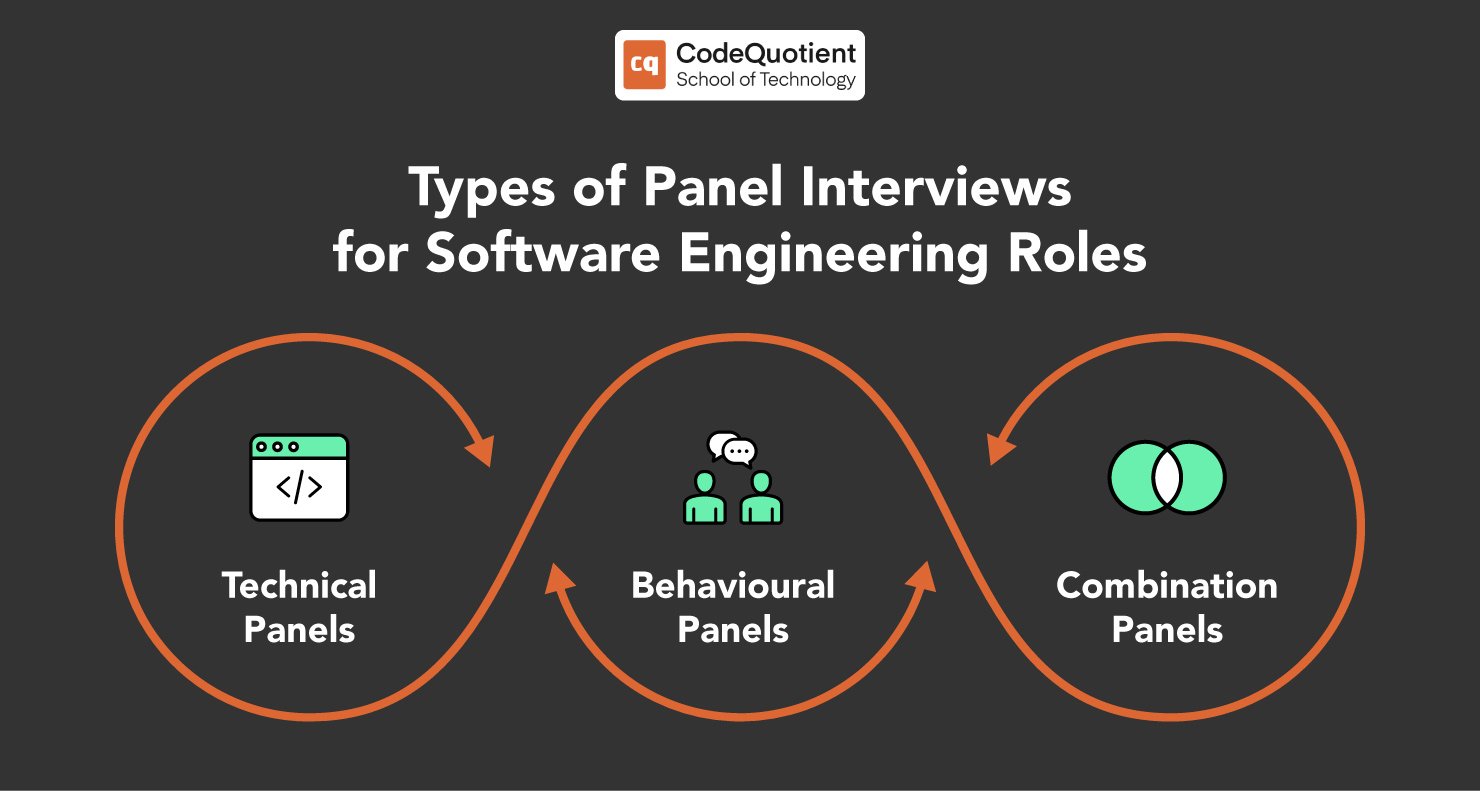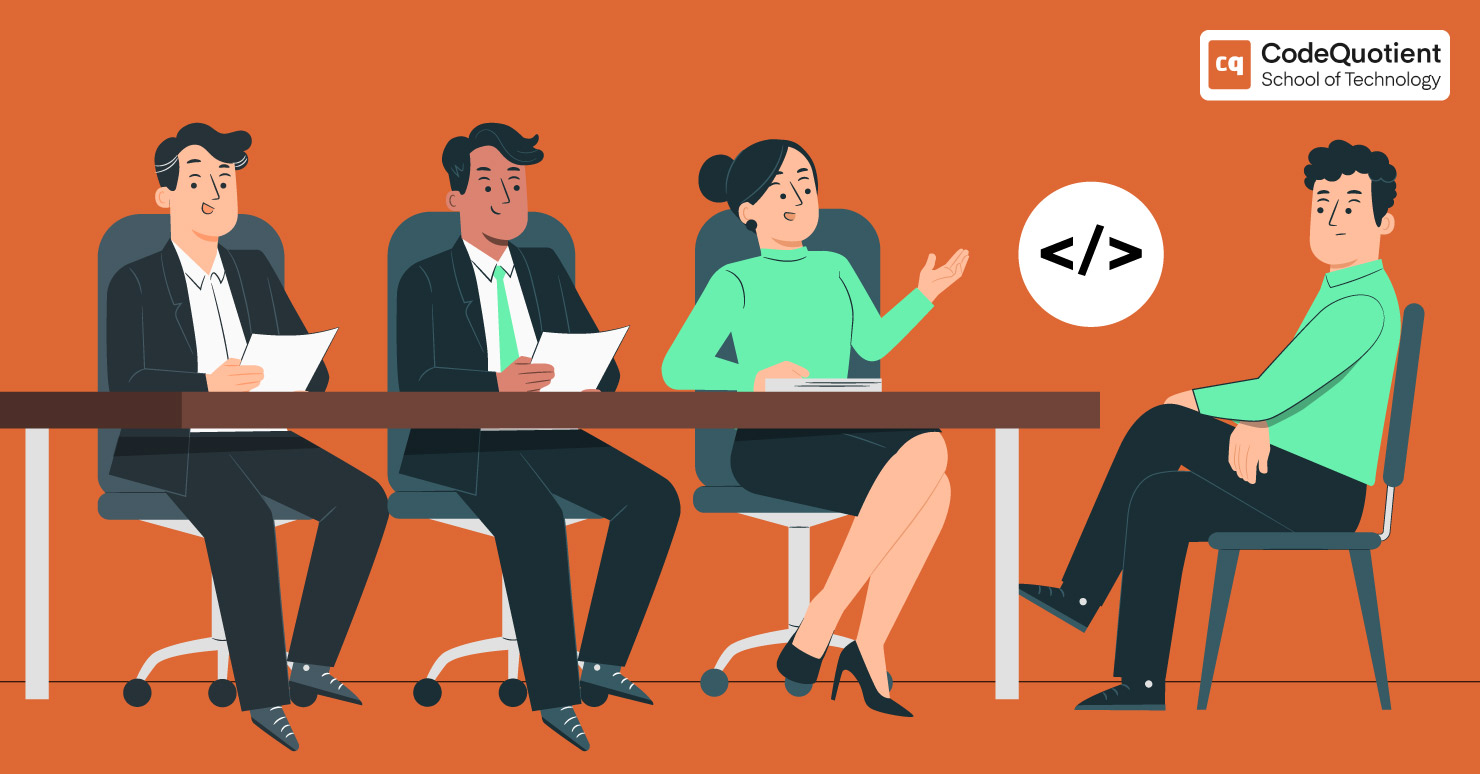If you are applying for a software engineering job, chances are you will have to face a panel interview at some point. These interviews are increasingly common in the software engineering industry when companies are hiring for technical roles.
Understanding the panel interview questions format is key to making a strong impression. This article outlines what software engineering candidates can expect in panel interviews and proven strategies to handle them effectively.
What is a Panel Interview?
A panel interview refers to an interview setup where multiple interviewers take turns asking a candidate questions. Panel interviews gained popularity because they allow companies to save time while still getting diverse perspectives and areas of feedback. The panel typically consists of 3-6 people, usually including both technical interviewers like software engineering managers or senior engineers as well as HR representatives.
The main purposes of panel interviews are to assess overall job fit evaluating technical capabilities, problem-solving potential, communication competence and collaboration skills. Candidates must demonstrate skills and provide compelling evidence that they can handle the required responsibilities.
Types of Panel Interviews for Software Engineering Roles

There are three primary types of panel interviews that software engineering candidates will encounter:
- Technical Panels: Technical interview panels focus exclusively on a candidate’s hard skills like coding proficiency, system design abilities and understanding of computer science concepts. Both conceptual questions and programming challenges are common.
- Behavioural Panels: Behavioral interview panels emphasise evaluating soft skills through prompts that enable candidates to showcase qualities like leadership, teamwork and communication. However, high-level technical discussions may still occur.
- Combination Panels: As the name denotes, combination panel interviews blend both technical questions and behavioural prompts, testing candidates on both hard and soft skills required for the role.
Advantages and Challenges of Panel Interviews
Compared to 1:1 interview questions, panel interviews offer a few advantages as an evaluation methodology:
- Multiple perspectives provide richer, more reliable assessments
- Observing interactions simulates collaboration expectations
- Test under pressure capability is critical for complex projects
However, panel interviews also introduce some unique challenges for candidates:
- Can feel more intimidating and stressful
- Increased importance of quickly building rapport with multiple people
- Staying focused while handling rapid volleys of questions
Despite the higher degree of difficulty though, being at ease in panel settings is essential for software professionals regularly contributing to team efforts. With preparation, students can develop the techniques to excel.
Some Common Panel Interview Questions
While a wide variety of questions may be asked, most fall into key themes or categories familiarising candidates with is prudent. Some representative examples include:
1. Technical Interview Questions
Example: “Can you explain the concept of polymorphism in object-oriented programming?”
Answer: “Polymorphism in OOP refers to the ability of objects belonging to different classes to respond to method calls of the same name. So, for example, consider a base Vehicle class – subclasses like Car and Boat can have their own implementations of methods defined in Vehicle, like a startEngine() method.”
2. Behavioural Interview Questions
Example: “Describe a challenging project you worked on and how you overcame obstacles.”
Answer: “The most challenging project I worked on was developing an e-commerce platform for a client handling high sales volume. The obstacle we hit was sharply spiking traffic, overrunning the capabilities of the original cloud infrastructure. Our databases were crashing, and response times slowed to unusable levels. I led migration efforts to an auto-scaling serverless architecture using microservices. By distributing the load across separately scalable modules, we stabilised performance despite traffic surges. Throughout, I coordinated with various team members to ensure no feature disruption during the transition.”
3. Problem-Solving and Critical Thinking Questions
Example: “If you had to choose between two different algorithms for a specific task, how would you decide which one to implement?”
Answer: “I would compare the time and space complexities of the algorithms to understand their inherent efficiencies. Testing prototypes of both algorithms with representative data sets could give real-world insights as well. Beyond computational performance, I’d evaluate readability and ease of modification – simpler algorithms are preferable for maintainability. Finally, I’d research the scale needs and expected data volumes for the app’s lifecycle to pick the fit optimally balanced algorithm.”
4. Teamwork and Collaboration Interview Questions
Example: “How do you handle disagreements within a team, and can you provide a specific example?”
Answer: “Recently, I was collaborating with 4 other developers to build a customer portal. We split components like user management, data visualisation, security, and notifications between subgroups. I ensured regular syncs to support coordination across teams and led efforts to define API contracts early. When one member was bottlenecked waiting on assets, I re-delegated tasks, allowing parallel workstreams. The portal launched on time, and post-mortems revealed our team communication was exemplary.”
5. Time Management and Prioritisation Questions
Example: “How do you prioritise tasks and manage your time effectively when faced with multiple deadlines?”
Answer: “I use a weighted scoring model on incoming requests balancing business value, timelines, effort levels and dependencies. This helps guide scheduling and ensure maximum impact initiatives take precedence. Within projects, I create milestones to enable focus despite shifting tactics. For my time – I block periods for heads-down work as well as strategic planning for balance. Checkpoint sync-ups verify priorities frequently.”
Strategies for Handling Panel Interview Questions
While being prepared for panel interview questions across a variety of topic areas is vital, candidates should also focus on core approaches and techniques tailored for the multi-interviewer format itself:
1. Preparing for Technical Questions
Actively reviewing core technical concepts in computer science while also practising coding challenges through sites like CodeQuotient ensures materials remain fresh to tap into during questions.
2. Responding to Behavioral Questions
Leveraging formatted response models like the STAR method (Situation – Task – Action – Result) provides helpful guidance. Tailoring responses to highlight interpersonal skills like leadership and teamwork required in roles is key.
3. Approaching Problem-Solving Questions
Thoroughly breaking down the parameters and implications of questions asked before jumping into solutions. Explaining the thought process aloud helps interviewers follow and assess problem-solving logic.
4. Showcasing Teamwork and Collaboration
Concrete examples of achievements in group efforts make responses more believable and compelling. Emphasising communication, conflict resolution and other soft skills in answers is strategic.
Elevate Your Tech Career with Panel Interview Mastery!
Panel interviews demand increased preparation and practice compared to traditional 1:1 interviews, given the need to demonstrate technical and interpersonal capabilities while handling rapid-fire, alternating questions. Mastering techniques to confidently tackle panel interviews should be a priority for those transitioning from software engineering academic programs into industry roles.
To learn intricate concepts around full-stack development, data structures & algorithms, system design, SQL, Java, React and more, enrol in CodeQuotient School of Technology’s immersive programs.
The BCA + UG Program in Software Engineering and MCA + PG Program in Software Engineering integrate industry skills through a cutting-edge curriculum and up to 1.5 years of paid internships. Deserving students also get sponsorship opportunities through the program’s strong industry partnerships.
To learn more and kickstart your software engineering career, get in touch with us today!




